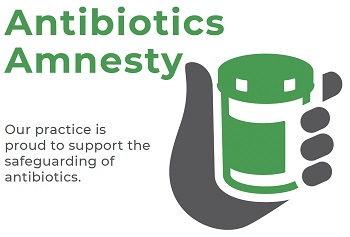A Precious Resource: Antimicrobial Stewardship in the Queen Mother Hospital for Animals
Clinical Connections – Spring 2023
Rosanne Jepson, Professor Small Animal Internal Medicine, and Tom Greensmith, Lecturer in Small Animal Emergency and Critical Care
In November 2022 the Queen Mother Hospital for Animals (QMHA) participated in ‘World Antimicrobial Awareness Week’, an international event coordinated by the World Health Organisation. In 2022, the theme was ‘Preventing Antimicrobial Resistance Together’. It was an important opportunity to consider both the preservation of antibiotics for human health and the role that the veterinary profession plays in preventing antimicrobial resistance.
Antimicrobial stewardship is always at the forefront of the clinical work that we do at the QMHA. Ensuring antimicrobial stewardship means that you establish a coordinated programme that promotes appropriate use of antimicrobials (including antibiotics), work to improve patient outcome, aim to reduce microbial resistance and help to decrease the spread of infections caused by multi-drug resistant organisms.
Since 2015, the QMHA has had an established antimicrobial stewardship programme, which includes a hospital-based policy on the use of antibiotics in cats and dogs, along with a designated antimicrobial stewardship team. The QMHA antimicrobial stewardship team is comprised of key clinicians across many of the hospital’s specialist disciplines, who have a keen interest in this area. In addition, we work very closely with a veterinary clinical microbiologist and are fortunate to have an onsite diagnostic microbiology service giving rapid turnaround of results, which is critical for decision-making in the sickest patients.
Increasingly, as in human medicine, multi-drug resistant bacterial organisms are recognised in some of the pets that we treat, which can create challenging clinical situations. The antimicrobial stewardship team provides an advice service for the hospital when these complex cases arise, with careful consideration for all clinical options that may be available.
To help guide the use of antibiotics, the hospital has a tier-based system for antibiotic prescribing. This tiered system indicates antibiotics that are considered first-line (Tier 1), those which should always have culture performed to confirm susceptibility prior to prescribing (Tier 2) and those which are restricted and require authorisation for use (Tier 3). Regular auditing is an important part of our antimicrobial stewardship to ensure hospital-wide compliance and to understand our use of antibiotics.

World Antimicrobial Awareness Week and antibiotic amnesty
Antimicrobial Awareness Week provided an opportunity to focus on the importance of careful use of antibiotics. Specific initiatives included a hospital-wide seminar, a social media campaign, podcast recording, infographics updating our team and clients on the latest progress on our antibiotics use, and increased engagement of our veterinary students in all elements of clinical decision-making in relation to antibiotic prescribing.
Together with World Antimicrobial Awareness Week, the QMHA also joined the ‘Antibiotic Amnesty’ throughout the whole of November. Although unused antibiotics prescribed to humans can be returned to pharmacies, many of them are disposed in household waste or down sinks or drains. This raises concerns about the possibility of environmental contamination. Even low levels of antibiotics in the environment can contribute to selection pressure for the development of multi-drug resistant bacteria. Responsible prescribing, administration and disposal of antibiotics where they are not used, is of vital importance. The same situation could be occurring with veterinary antibiotics, but no data is currently available.
The Antibiotic Amnesty was a national initiative in conjunction with the NHS, RCVS Knowledge1, the BSAVA and RUMA-CA&E (Responsible Use of Medicines Alliance – Companion Animal and Equine). During the amnesty, clients attending the QMHA for an appointment were asked to return any unused antibiotics they had at home so that these could be disposed of in a clinically and environmentally safe manner. There was also an opportunity for clients to complete a survey2 to help the veterinary profession gain a better understanding of why these antibiotics had been returned.
Data on the type and amount of unused antibiotics returned to the QMHA has been submitted as part of this national veterinary initiative. By joining forces with the wider veterinary profession, we were pleased to be part of this important ongoing work to keep antibiotics safe for the future.
How should I dispose of unused antibiotics that have been prescribed for my pet?
Always follow the instruction from your veterinary surgeon about the administration of antibiotics. If you find you have unused antibiotics, please do not dispose of them down the toilet, sink or in household waste. The best way to dispose of unused antibiotics is to take them into your veterinary practice who will be able to dispose of them in a safe and environmentally friendly way. Speak to your local human pharmacy if you have antibiotics that were prescribed for human use for disposal.
References:
1 https://knowledge.rcvs.org.uk/amr/
2 https://rumacae.org.uk/antibioticamnesty/
